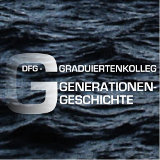Abstract Astrid Baerwolf
The dissertation will explore the extent to which changing policies on female employment and family support, which have undergone major changes since unification, influence current parenting practices and the division of family labour. It is often assumed that both, men and women in Eastern Germany continued to value employment highly after unification. However, my findings which are based on fieldwork since 2005 so far suggest that there is a shift towards West German patterns of parental care in the current generation of mothers who are placing more value on intimate motherly care of young children at home than earlier generations. Two older generations of mothers are also taken into consideration - on the one hand the parent generation of these mothers and on the other hand the generation of mothers, who are about ten years older and whose children were born around the time of German unification in 1989/90. They are being compared with regard to their experience as young mothers who, as is often assumed for GDR mothers, had an 'equal balance' of job, children and household work to share with their husbands. In the case of the parent generation the question is being asked in how far they managed to transfer their own values and experiences with regard to the compatibility of job and children on to their daughters. The study thus focuses on comparing life histories of women of three different generations in Eastern Germany, by analysing the connections between generation transfers in family and society.
